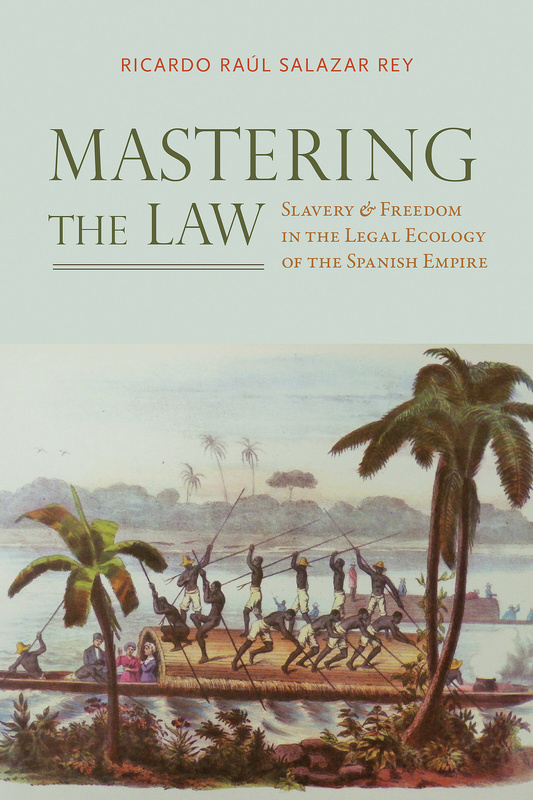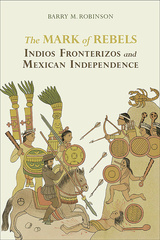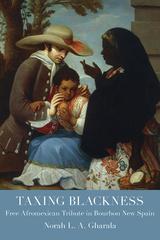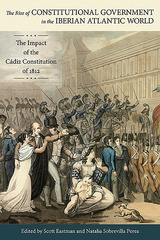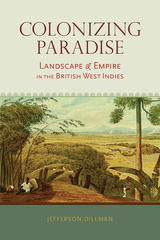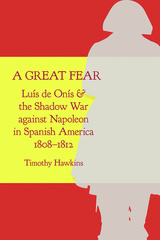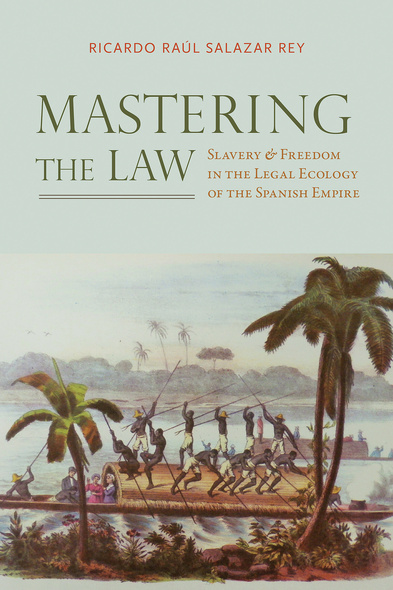
216 pages, 6 x 9
4 B&W figures - 5 maps
Hardcover
Release Date:17 Nov 2020
ISBN:9780817320669
Mastering the Law
Slavery and Freedom in the Legal Ecology of the Spanish Empire
SERIES:
Atlantic Crossings
University of Alabama Press
Explores the legal relationships of enslaved people and their descendants during the sixteenth and seventeenth centuries in Spanish America
Atlantic slavery can be overwhelming in its immensity and brutality, as it involved more than 15 million souls forcibly displaced by European imperialism and consumed in building the global economy. Mastering the Law: Slavery and Freedom in the Legal Ecology of the Spanish Empire lays out the deep history of Iberian slavery, explores its role in the Spanish Indies, and shows how Africans and their descendants used and shaped the legal system as they established their place in Iberoamerican society during the seventeenth century.
Ricardo Raúl Salazar Rey places the institution of slavery and the people involved with it at the center of the creation story of Latin America. Iberoamerican customs and laws and the institutions that enforced them provided a common language and a forum to resolve disputes for Spanish subjects, including enslaved and freedpeople. The rules through which Iberian conquerors, settlers, and administrators incorporated Africans into the expanding Empire were developed out of the need of a distant crown to find an enforceable consensus. Africans and their mestizo descendants, in turn, used and therefore molded Spanish institutions to serve their interests.Salazar Rey mined extensively the archives of secular and religious courts, which are full of complex disputes, unexpected subversions, and tactical alliances among enslaved people, freedpeople, and the crown.
The narrative unfolds around vignettes that show Afroiberians building their lives while facing exploitation and inequality enforced through violence. Salazar Rey deals mostly with cases originating from Cartagena de Indias, a major Atlantic port city that supported the conquest and rule of the Indies. His work recovers the voices and indomitable ingenuity that enslaved people and their descendants displayed when engaging with the Spanish legal ecology. The social relationships animating the case studies represent the broader African experience in the Americas during the sixteenth and seventeenth centuries.
Atlantic slavery can be overwhelming in its immensity and brutality, as it involved more than 15 million souls forcibly displaced by European imperialism and consumed in building the global economy. Mastering the Law: Slavery and Freedom in the Legal Ecology of the Spanish Empire lays out the deep history of Iberian slavery, explores its role in the Spanish Indies, and shows how Africans and their descendants used and shaped the legal system as they established their place in Iberoamerican society during the seventeenth century.
Ricardo Raúl Salazar Rey places the institution of slavery and the people involved with it at the center of the creation story of Latin America. Iberoamerican customs and laws and the institutions that enforced them provided a common language and a forum to resolve disputes for Spanish subjects, including enslaved and freedpeople. The rules through which Iberian conquerors, settlers, and administrators incorporated Africans into the expanding Empire were developed out of the need of a distant crown to find an enforceable consensus. Africans and their mestizo descendants, in turn, used and therefore molded Spanish institutions to serve their interests.Salazar Rey mined extensively the archives of secular and religious courts, which are full of complex disputes, unexpected subversions, and tactical alliances among enslaved people, freedpeople, and the crown.
The narrative unfolds around vignettes that show Afroiberians building their lives while facing exploitation and inequality enforced through violence. Salazar Rey deals mostly with cases originating from Cartagena de Indias, a major Atlantic port city that supported the conquest and rule of the Indies. His work recovers the voices and indomitable ingenuity that enslaved people and their descendants displayed when engaging with the Spanish legal ecology. The social relationships animating the case studies represent the broader African experience in the Americas during the sixteenth and seventeenth centuries.
Mastering the Law is a rich and valuable contribution to the history of Latin America, the Caribbean, and the Atlantic World, a necessary read for scholars of the African diaspora, and well suited to both graduate and undergraduate courses.’
—New West Indian Guide
‘Salazar Rey passionately presents intriguing case studies that provide insights into ongoing debates about the function and processes of Spanish law codes and slavery in the Americas. These case studies effectively narrate evidence taken from multiple church and civil courts to demonstrate the legal persona of slaves in the sixteenth- and seventeenth-century Province of Cartagena.’
—Nicole von Germeten, author of Profit and Passion: Transactional Sex in Colonial Mexico
Seven decades ago, historian Frank Tannenbaum argued that the Spanish and Portuguese endowed enslaved people with more legal and moral personality than the British Empire. Salazar-Rey returns to this persistent debate, drawing from the archives of the Spanish Empire's secular and religious courts. He focuses on the major Atlantic port city Cartagena de Indias (today in Colombia), questioning whether African slaves and their descendants found better opportunities and treatment through the Iberian empire’s legal system. Salazar-Rey’s numerous case studies of enslaved Afro-Iberians at court will fascinate readers with their quotidian detail of 16th- and 17th-century life. More importantly, these examples show that the Spanish legal system provided only a modicum of redress for slaves owned by the most powerful masters and imperial administrators. Too many enslaved people were excluded or tortured by the lash to prove they 'molded a legal ecology that was hostile but not monolithic'. Connecting personal experience to the historical record, Salazar-Rey explains in an affecting preface how, as an 18-year-old Guatemalan economic migrant, he hastily mastered legal procedures to fight for his right to employment, 'echo[ing] the experiences' of his subjects. This work demonstrates the author’s enormous potential as a rising scholar. Highly recommended.'
—CHOICE
Ricardo Raúl Salazar Rey is assistant professor of Latin American history at the University of Connecticut Stamford.

